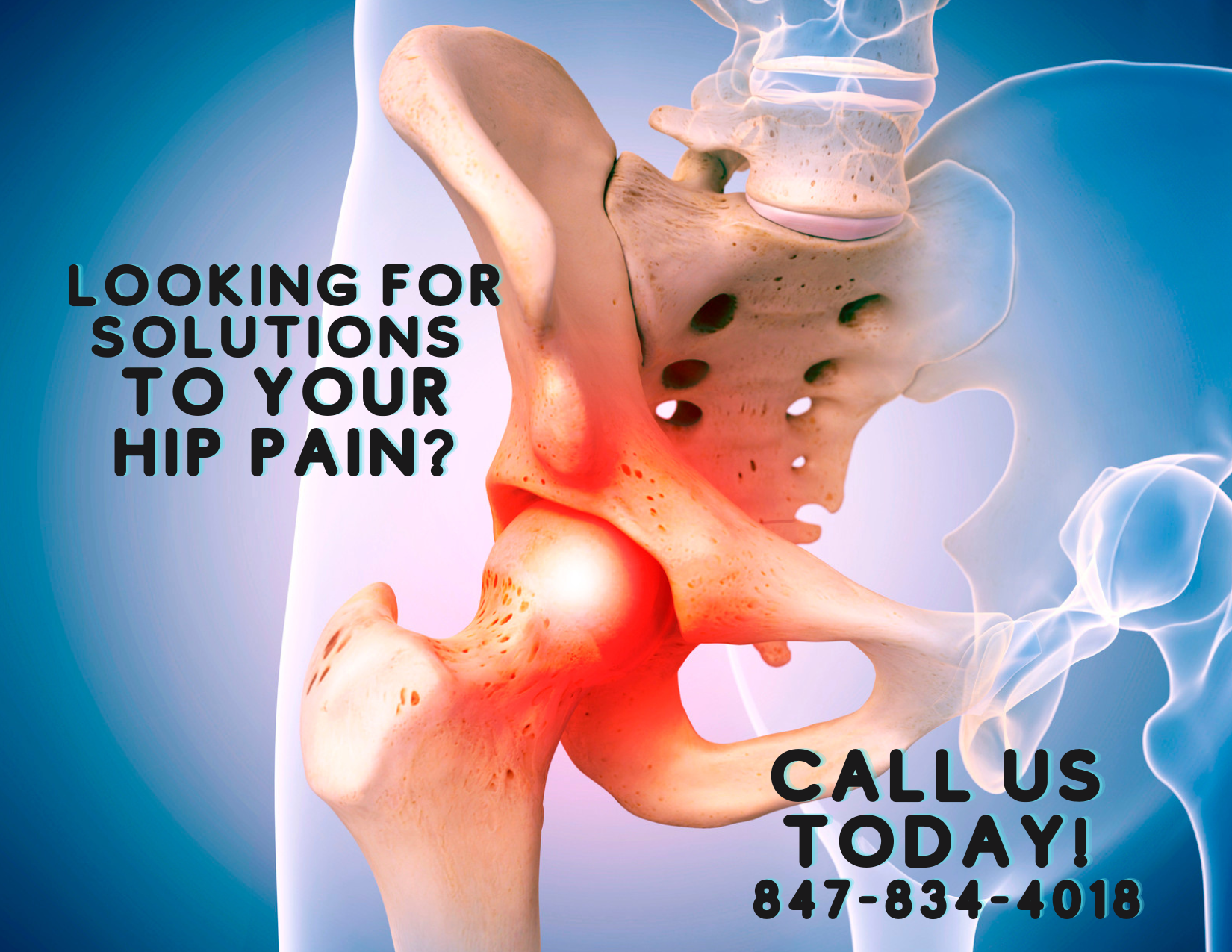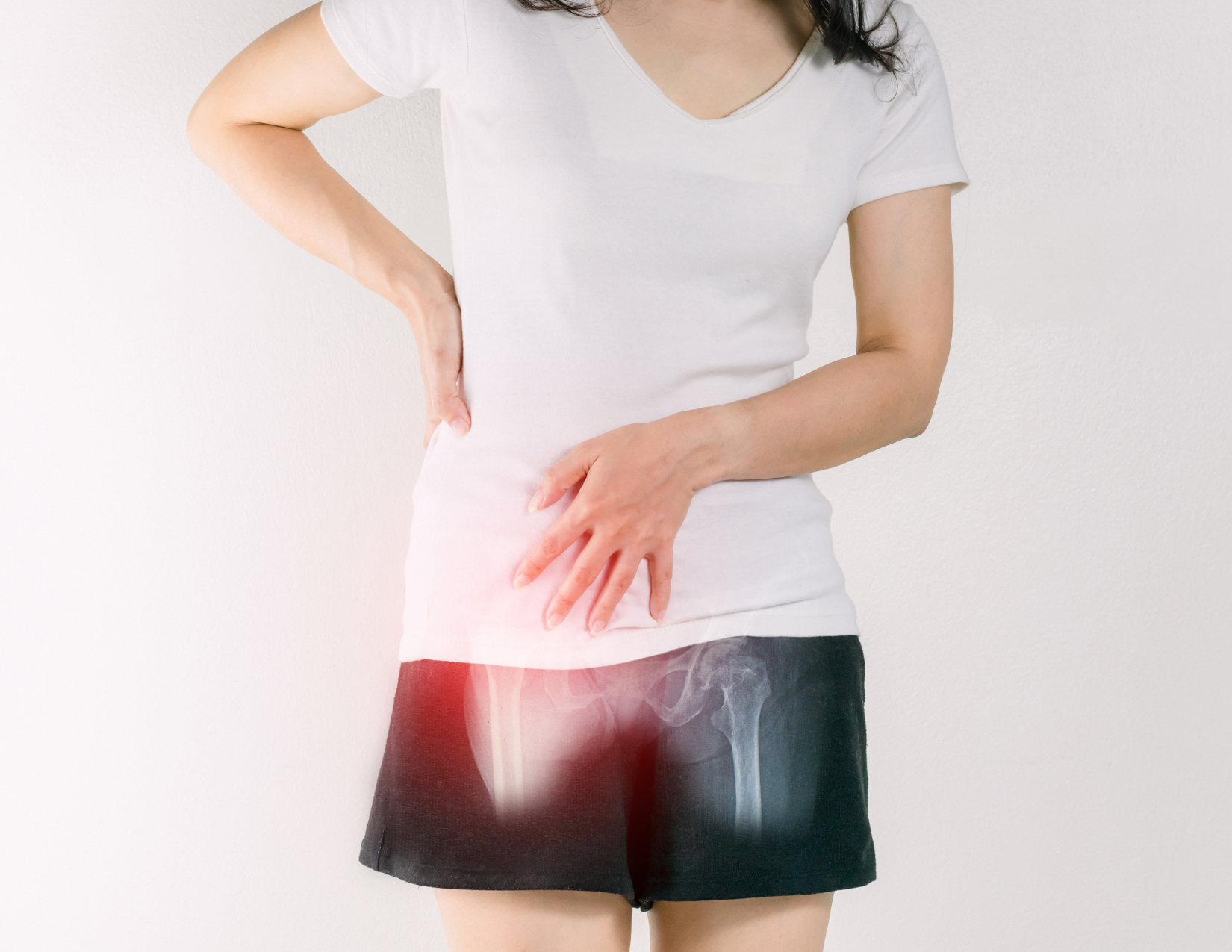
Hip pain is a common problem that many people experience at some point throughout their life. Treating your hip pain requires a thorough assessment of your medical history, lifestyle, and previous imaging. By discussing your symptoms, experiences, and habits with you, Dr. DeCaria will determine how to best eliminate your hip pain. Dr. DeCaria has effectively treated hip pain from many different conditions through her unique approach that utilizes conventional medicine, as well as integrative and functional medicine.

Each person’s pain is different and requires a unique, individualized treatment plan tailored to their needs to give the most relief possible. Below are the most common approaches to minimizing, and hopefully eliminating, hip pain:
- Home remedies are often a simple way to improve your pain. A common protocol is RICE, which can be particularly helpful for a recent injury or inflamed hip: rest, ice, compression, and elevation. If you are having severe pain after an injury, we always recommend being evaluated by a doctor. For minor injuries, by combining these simple methods, you may significantly reduce your hip pain from the comfort of your home.

- Rest: avoid strenuous exercise or activities which put pressure or weight on your hips. Resting does not necessarily mean stopping all activity, just limiting your activity so that you do not further aggravate the injury and pain.
- Ice/Heat: applying cold packs several times a day can keep any swelling or inflammation down and provide relief. In some cases, heat will actually help reduce your hip pain. This can be done through a warm bath or shower or using a heating pad. Others may benefit from alternating between ice and heat. Depending on your pain, Dr. DeCaria can guide you in which of these methods may be more effective for you!
- Compression: by wrapping the area in a soft bandage or wearing compression clothing, you could prevent any additional swelling in your hip joint. Compression contributes to increased circulation and can help your muscles recover faster.
- Elevation: raise your leg(s) up higher than your heart and rest them on a comfortable cushion. Elevation will help minimize pressure on the hip joint and help your blood flow more easily. Being cautious of your posture and minimizing stress on the hip joint is also important.
- Physical therapy is a very common form of rehabilitation for hip pain. A physical therapist can assist you by providing an individualized exercise routine to complete, both in the clinic and at home. These exercises are tailored to your specific hip pain to improve your overall flexibility, endurance, and strength, and to minimize your hip pain.
- Medications come in a variety of forms and can help with your hip pain in different ways. Anti-inflammatory medications can decrease your hip pain by reducing inflammation and pain in your hip joint and muscles. These over the counter pain medications can be used short term and with caution to help your pain, however, overuse of medications without proper guidance from a physician can cause further issues.
- Steroid Injections are a non-invasive treatment option for patients who are struggling from chronic pain in their joints. This procedure can temporarily relieve pain by administering an anti-inflammatory steroid using X-ray guided fluoroscopy. Dr. DeCaria has extensive medical training and experience in treating chronic pain through joint injections. Hip pain can come from a variety of sources including the hip joint itself, a bursa, muscles, the sacroiliac joint, and even your lumbar spine. Dr. DeCaria is highly skilled in diagnosing and treating the root cause of your hip pain.
- Lifestyle Adjustments: For some people, simple lifestyle changes may need to be made to alleviate the pain. Having a healthy diet and exercise plan can help reduce your hip pain. Weight loss can be helpful as the hip is a weight-bearing joint. Occasionally, adding certain supplements into your diet can also help your overall health and minimize hip pain. As in integrative physician, Dr. DeCaria can guide you on choosing safe and effective supplements. A balanced food plan and avoiding excessive processed foods can be helpful, in addition to doing light aerobic activities such as water therapy. Incorporating stretching into your day can also help decrease hip pain. Stretching and home exercises can increase muscle flexibility and endurance.
- Surgery is typically used as the final option for patients who have thoroughly tried conservative treatments and haven’t found relief. Surgical options can include a full hip replacement or arthroscopic repair of a labral tear.. It is very important to know that most people who experience hip pain can fully recover without needing surgical treatment. Discuss your options with Dr. DeCaria to know if surgery is necessary to meet your individual needs.
If you are experiencing any hip pain, call Revitalize Medical Center to schedule your appointment with Dr. DeCaria today! She will work with you to learn more about you and your hip pain, and to identify the root source of your pain and create a unique treatment plan for you.
